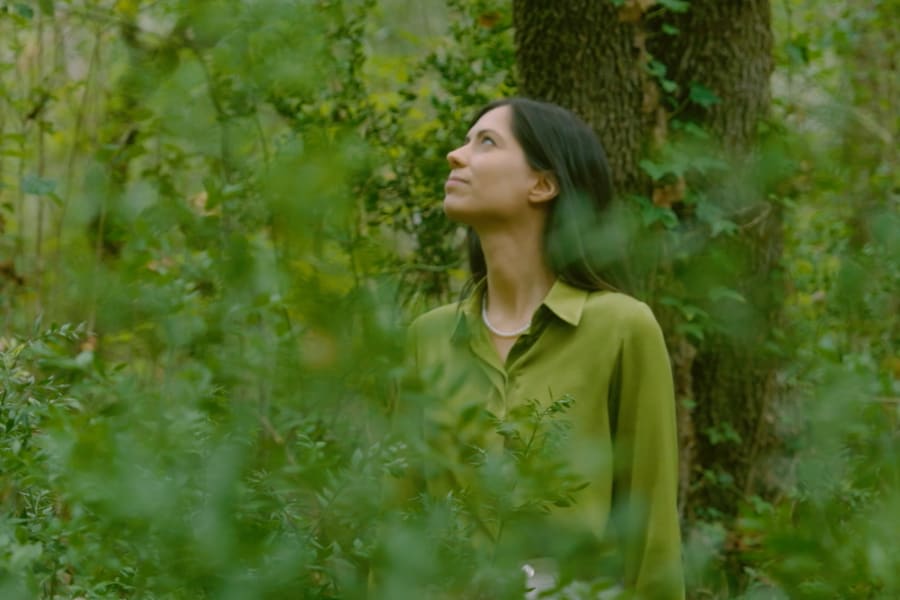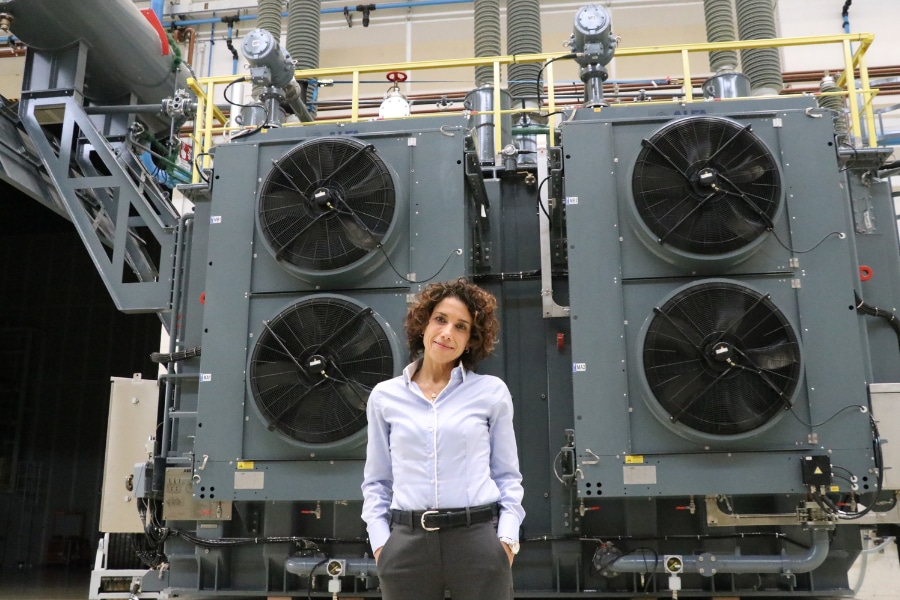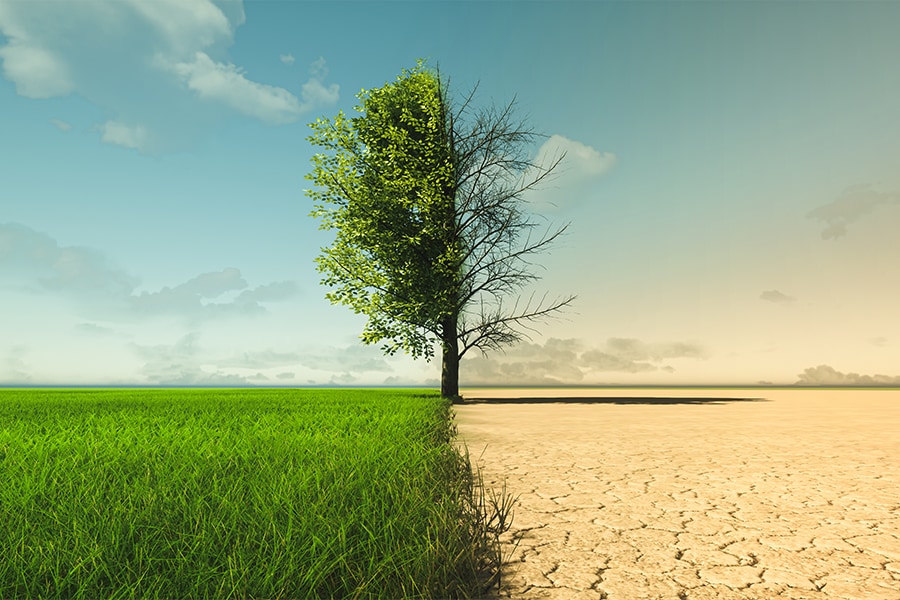The People of Hitachi: An Engineer’s Commitment to Realizing a Circular Economy for a "Waste-free and Resource-efficient Society"
Jan. 11, 2024
Yuki Kondo
Aiming to realize a sustainable society, the EU committed in 2015 to a new economy system, that was "circular economy." The circular economy is designed to eliminate waste and establish a cycle for resources, and the Hitachi Group is currently conducting research and development to make this a reality.
Cristina Vera, an engineer at Hitachi Europe Ltd., is working to drive this research forward. *Affiliation as of October 2023
As someone concerned about the global environment since childhood, Cristina says that she was enthusiastic to become involved in this research. We spoke with Cristina to learn more about the concept of a circular economy and the project which is contributing towards circular economy becoming a reality, and what such an endeavor means to her.
Becoming Aware of Environmental Issues
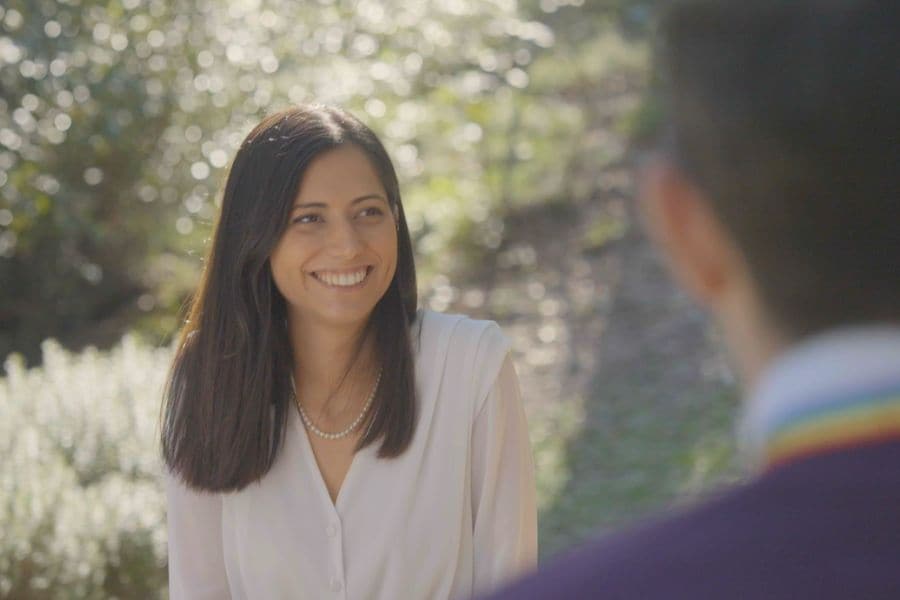
Growing up in the south of Spain, Cristina describes how she has witnessed climate change and other environmental issues since she was a child.
"Droughts and heatwaves often struck the region I grew up in, followed by torrential rains, soil erosion, and ultimately, a high risk of desertification. It is an agricultural region, and as such, it heavily depends on the weather. People pay attention to changes in the weather, and it is a very present topic. As I witnessed such environmental issues, I started to wonder about what would come of the planet."
These experiences strengthen Cristina's concern for the global environment. Solving environmental issues would require changing the current nature of the economy in terms of mass production and mass disposal. With ambition, Cristina set about researching in the fields of industry and engineering at graduate school. After graduating, she gained experience as a technical consultant for manufacturing processes and further developed her expertise as an engineer.
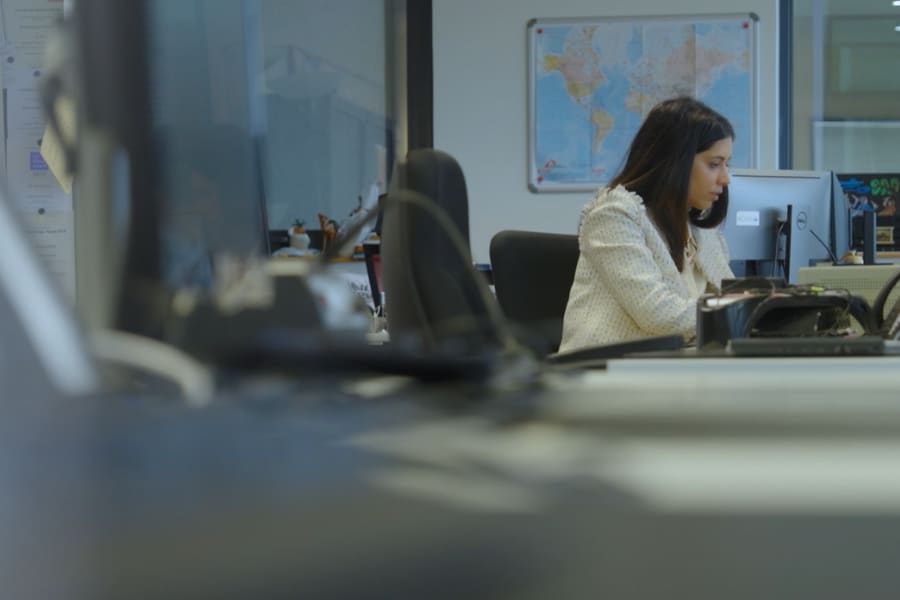
At the same time, throughout her career, Cristina has noticed a change in people's perception of business.
“At the beginning of my career, the only motivation for changing a well-functioning industrial process would have been to reduce cost. Fortunately, now there is an increasing motivation to protect the environment. More resources are being allocated to reduce the energy consumption and the greenhouse gas emissions from manufacturing processes, and to curtailed material extraction. There are many environmental challenges as a result of the world’s industrial activity that we must tackle within the industry, and it gives me a sense of purpose to work in a job at a company where I could take these concerns and make a difference for society.”
As society turned its attention to the global environment, Cristina chose to strive toward realizing her vision by becoming an engineer at the R&D Center of Hitachi Europe. The R&D Center aims to solve various social issues by leveraging innovation and technology.
The "Waste-free" Circular Economy
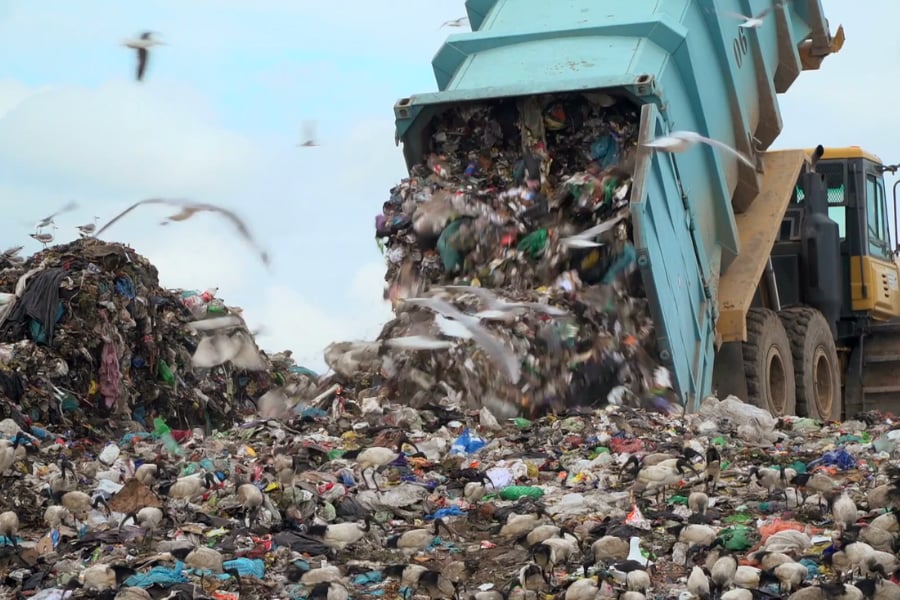
“We are extending the world’s industrial activity beyond most planetary boundaries. Therefore, to ensure a sustainable world, we must operate an economic system that protects biodiversity and natural resources, limits emissions, and guarantees economic growth through the circularity of resources—a circular economy."
In 2015, the European Union committed to a circular economy through the 'Circular Economy Action Plan. This is an alternative to the linear economy in which resources are extracted, products are made, and waste is disposed of. At the core of the circular economy concept is resource efficiency to reduce raw material extraction along with the elimination of production waste.
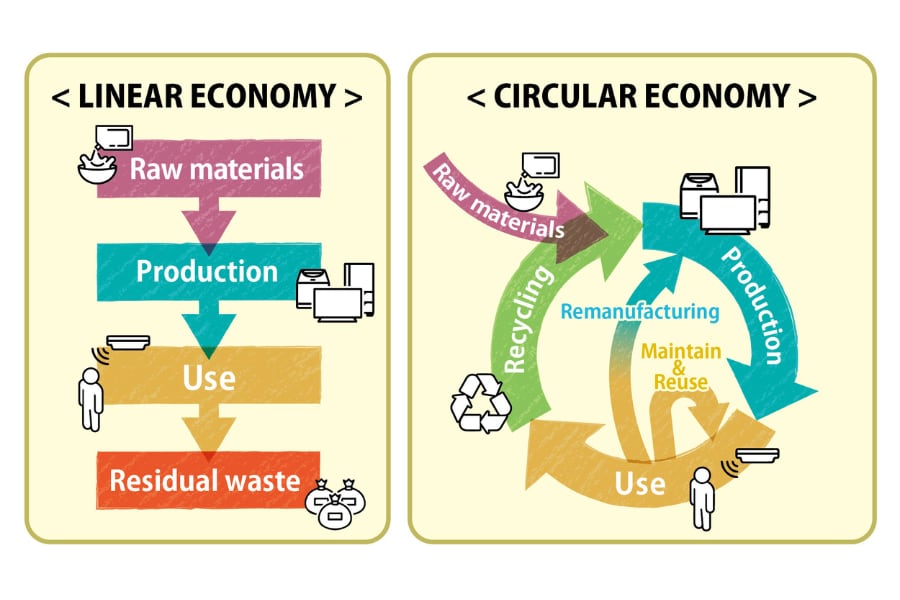
Reduce, Reuse, and Recycle comprise the Three R's, one of the elements of a circular economy. In addition to this, it is essential to fundamentally revise processes, such as those used in resource procurement and product design and establish a framework that does not produce waste.
This is also something that Cristina has long been aiming to accomplish herself.
Leveraging Product Life Cycle Data
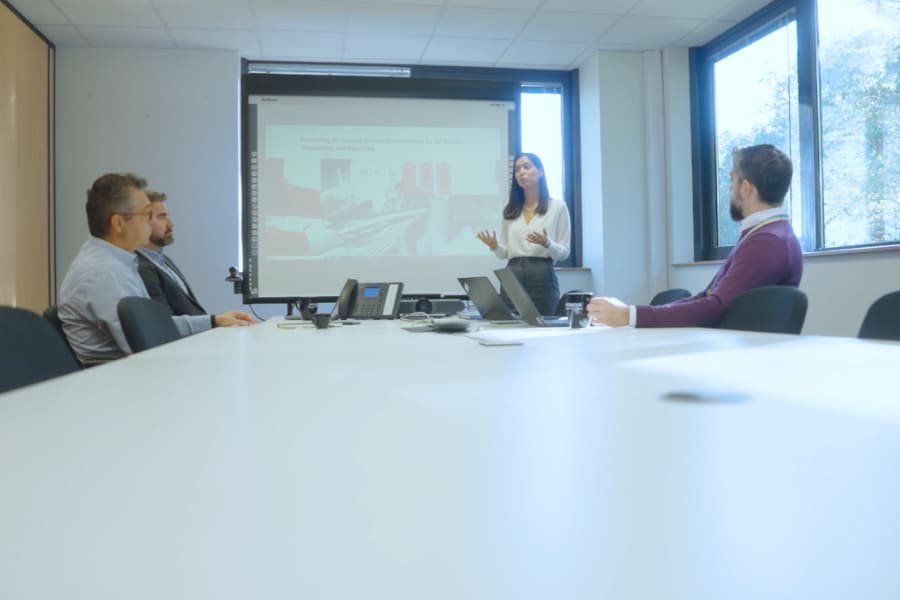
Hitachi Europe's R&D Center has been engaged in research on smart manufacturing using digital technology for several years. One of these projects aims to realize a circular economy.
In this project, Cristina is currently working on collecting data related to the life cycles of products and establishing methods to apply this data in a circular economy.
"The European Union is progressing towards ensuring product traceability along the entire life-cycle, by mandating requirements for companies to collect life cycle-related data on their products. Companies will need to provide data on the materials used, manufacturing processes, distribution, usage, and how they reach the end of their life cycles. How we analyze this data to make decisions will be crucial in achieving a circular economy.”
Cristina has worked on developing a data collection system during the operation of rolling stock to enable circular economy decisions. She explains that if the system comes to fruition, companies will be able to make decisions on data. It will contribute to reduce hazardous waste emissions, identify optimal component maintenance schedules, and extend the life of the products. In addition, we can determine the best methods to reuse components that reach the end of their life cycles.

"There are a lot of issues we need to overcome concerning product data usage, including how to protect confidential information. However, we cannot continue to lose biodiversity to material extraction, compromising the environment's ability to self-regulate, while simultaneously accumulating endless waste from the disposal of products. Each and every industry must become aware of this reality and start working toward realizing a circular economy."
As Cristina continued her research with unwavering dedication, an enormous opportunity arose. The opportunity was a transfer to Hitachi Energy, a Hitachi Group Company that operates energy businesses.
"I believe that achieving a circular economy in the energy sector, a field people depend on in their daily lives and an enabler of many other industrial activities, will be a significant step forward in building a sustainable society. The diversity of businesses within Hitachi Group is the key factor that enables the combination of research and innovation from various domains, contributing to society. I am very excited to have the opportunity to take the work I have achieved in my research and apply it at the frontlines of the business within Hitachi Energy.”
Aiming to Protect the Countless Lives on Our Planet

As she seizes new opportunities, Cristina has found herself increasingly busy. Outside work, however, she enjoys spending time outdoors, including taking her dog for walks in the forest. Cristina describes how spending her time like this not only allows her to relax and unwind but also further deepens her commitment to our planet.
“Going on a mindful walk in the forest, for instance, serves as a constant reminder of the sheer diversity of life that inhabits nature. The planet is not just for us; we share it with millions of species, but we humans are the ones compromising its natural balance, so I believe it is our responsibility to protect it.”
The journey to realizing a circular economy is by no means an easy one. Regardless, Cristina has no reservations about "thinking positively" about the future that lies ahead.
“The good news is that we can shape the future, as it depends on what we do today. Even as individuals, we have the power to influence our community, our company, and the industries from which we buy products. When individuals come together, the collective impact can be huge. Within the Hitachi Group, I am also involved in an initiative for connecting employees on the topic of sustainability to facilitate an exchange of knowledge and views. I remain committed to bringing positive change through my work and these initiatives.”
